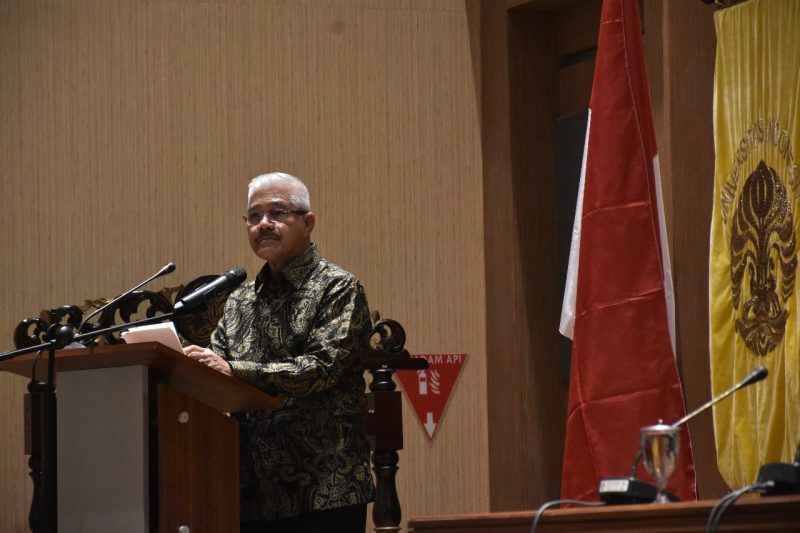Chief Justice of the Supreme Court: “Corruption Eradication Can Start from Family”
Jakarta – Public Relations: Corruption is an extraordinary crime that is often carried out in a planned and systematic manner and is a violation of the social and economic rights of the community at large and endemic. Corruption also damages the joints of the national economy, as well as degrading the nation’s dignity in international forums. This phenomenon requires eradication which must be carried out in an extraordinary manner and the action against the perpetrators of corruption must be specifically regulated.
Responding to this, the Chief Justice of the Supreme Court, Prof. Dr. M. Hatta Ali, SH., MH., said that in 2018, the number of cases of corruption cases that entered the level of Cassation were 662 (six hundred sixty two) cases. And the case of reconsideration (Peninjauan Kembali—PK) related to cases of corruption is a special criminal case with the highest number, namely 208 (two hundred and eight) cases. Hatta explained that the Supreme Court understood the parameters of the successful eradication of corruption rather than the high number of prosecution and how many perpetrators were sentenced to crimes, but how to suppress the crime rate of corruption itself to its lowest point. This was conveyed by Hatta Ali who was the keynote speaker at the National seminar and Call for Papers with the theme “Criminal Law Policy in Eradicating Corruption in Indonesia, held at the Faculty of Law, Universitas Indonesia (UI), Monday, 18 /2/2019.
Furthermore Hatta Ali said at the event organized by the Criminal Law and Criminology Society (Masyarakat Hukum Pidana dan Kriminologi—MAHUPIKI) that the government and the community must take steps to prevent and eradicate corruption in a systematic and sustainable manner. This sustainable system approach, according to Hatta, must be put forward to streamline efforts to eradicate corruption. “Continuous efforts must be made at least on the elements of the legal system, namely the structure, substance of law and legal culture,” said Hatta Ali in the event which was attended by more than 200 participants from academicians, law enforcement agencies and anti corruption practitioners from all over Indonesia.
Indonesia, continued Hatta Ali, had passed almost a generation to realize the anti-corruption legal culture. The generation born after the reformation should be a generation of anti-corruption culture. “Of course this is a difficult task that is not only a responsibility for the government and law enforcement, but all stakeholders must even start from the family as the smallest social institution where the value is invested as early as possible,” Hatta Ali said.
Dr. Yenti Gunarsih, SH., MH., Chair of MAHUPIKI as the organizer of the event said in her remarks that the eradication of corruption is not only enough by using the criminal law approach because corruption is a crime, the criminology approach is also important in combating the crime.
National Police Chief, Deputy Attorney General for Special Crimes (Jampidsus), Deputy Chairperson of the Corruption Eradication Commission, Deputy Chancellor of UI, FHUI Professors, Dean of FHUI and others attended as speakers at the series of events that lasted until Tuesday 19 February 2019.
Source: https://mahkamahagung.go.id/id/berita/3429/ketua-ma-pemberantasan-korupsi-bisa-dimulai-dari-keluarga

